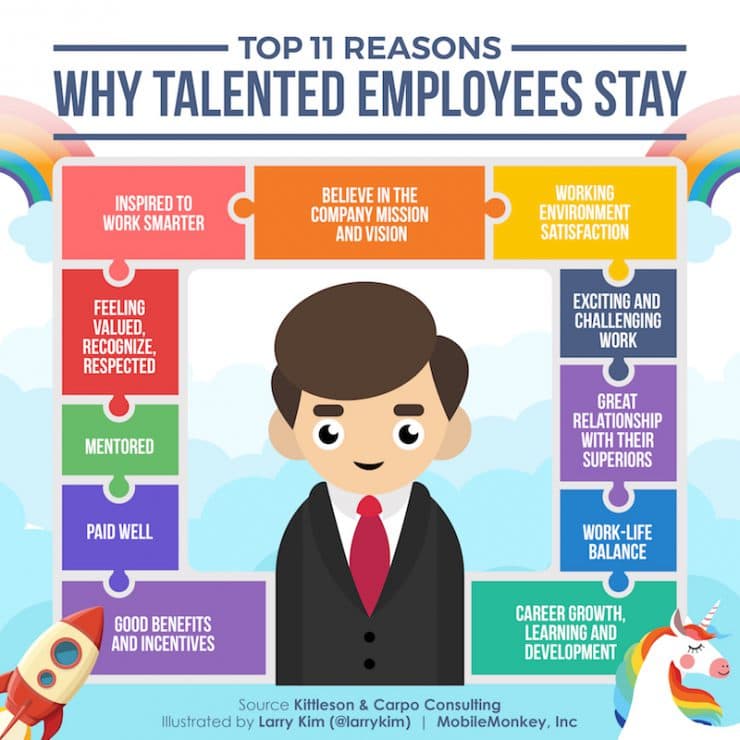What Do Employees Say About This Company? Insights & Strategies
Employee feedback plays a crucial role in shaping a company’s reputation, work culture, and future hiring prospects. Understanding what employees say about a company can influence job seekers, investors, and even customers. In this guide, we explore how employees rate their workplaces, the impact of reviews, and strategies for businesses to improve employee satisfaction.

Why Employee Reviews Matter
Employee reviews provide authentic insights into a company’s work culture, leadership, and overall environment. Websites like Glassdoor, Indeed, and LinkedIn allow employees to share their experiences, affecting:
- Employer Branding – A strong reputation attracts top talent.
- Recruitment Success – Job seekers rely on reviews before applying.
- Company Morale – Positive reviews enhance workplace satisfaction.
A company with high employee satisfaction enjoys better retention rates, productivity, and business growth.
How Employees Rate a Company
1. Work Culture & Environment
Employees often rate companies based on work culture, management style, and office atmosphere. Factors that contribute to a positive work environment include:
- Transparent communication from leadership.
- Diversity and inclusion in hiring and decision-making.
- Work-life balance policies such as flexible schedules.
Companies with a toxic work culture often receive negative reviews, leading to high turnover.
2. Salary & Benefits
Compensation is one of the most discussed topics in employee reviews. Employees compare salaries with industry standards, considering factors like:
- Fair pay for the workload and experience level.
- Bonuses, health benefits, and retirement plans.
- Opportunities for raises and promotions.
A company that underpays employees or offers poor benefits often faces negative feedback and higher resignation rates.
3. Leadership & Management

Effective leadership directly impacts employee satisfaction. Employees value:
- Supportive and approachable managers.
- Fair performance evaluations and promotions.
- Opportunities for professional development.
A toxic or micromanaging leadership style often leads to negative reviews and high turnover.
4. Career Growth & Learning Opportunities
Employees prefer companies that invest in their future. High ratings are often given to companies that provide:
- Training programs and mentorship.
- Tuition assistance and certifications.
- Clear career progression paths.
A lack of growth opportunities results in employee dissatisfaction and frequent resignations.
5. Job Security & Stability
A stable workplace is a top priority for employees. They assess:
- Layoff history and financial health of the company.
- Transparency in business decisions affecting employees.
- Long-term vision and growth strategy.
High turnover rates and sudden layoffs create negative perceptions, reducing employee trust and morale.
What Employees Complain About the Most

While some companies receive glowing reviews, others face criticism. The most common employee complaints include:
- Unfair wages and lack of salary transparency.
- Poor management and toxic workplace culture.
- Lack of recognition and appreciation.
- Limited career growth opportunities.
- Overworking and unrealistic expectations.
Negative employee reviews directly impact hiring efforts and brand reputation.
How Companies Can Improve Employee Satisfaction
1. Offer Competitive Salaries & Benefits
- Conduct market salary research to stay competitive.
- Provide comprehensive benefits including healthcare, paid time off, and bonuses.
- Implement performance-based incentives.
2. Foster a Positive Work Culture
- Encourage open communication between employees and leadership.
- Promote work-life balance with flexible work arrangements.
- Recognize and reward employee achievements.
3. Invest in Employee Growth
- Provide training programs and skill development.
- Offer career advancement opportunities within the company.
- Support mentorship programs to guide employees.
4. Improve Leadership & Management
- Train managers to lead with empathy and fairness.
- Ensure clear performance expectations and feedback mechanisms.
- Create a supportive work environment that values employees.
5. Encourage Employee Feedback & Act on It
- Regularly conduct employee satisfaction surveys.
- Address concerns raised in reviews and take corrective actions.
- Foster a culture where employees feel heard and valued.
The Impact of Employee Reviews on Recruitment
A company’s online reputation directly influences job seekers. Research shows:
“78% of job seekers read employee reviews before applying for a job.”
“A 1-star increase in company rating can lead to a 10% rise in job applications.”
Companies that proactively manage their reputation attract top talent, while those with poor employee ratings struggle to hire and retain skilled workers.
How to Respond to Employee Reviews
1. Acknowledge Positive Reviews
- Thank employees for their feedback.
- Highlight their positive experiences in recruitment marketing.
- Encourage more employees to share their experiences.
2. Address Negative Reviews Professionally
- Respond with empathy and a willingness to improve.
- Avoid defensive or dismissive replies.
- Offer solutions to concerns raised in the review.
3. Take Action Based on Feedback
- Identify recurring complaints and work on solutions.
- Communicate changes and improvements to employees.
- Show that employee feedback leads to real changes.
FAQs About Employee Reviews
1. How can a company encourage employees to leave reviews?
Encourage employees to share honest feedback by creating a culture of openness and ensuring they feel safe and valued.
2. What platforms do employees use to review companies?
Popular platforms include Glassdoor, Indeed, LinkedIn, and Google Reviews.
3. Can a company remove negative reviews?
No, but companies can respond professionally and work on improvements to encourage better future feedback.
4. How do negative employee reviews affect business performance?
Poor employee reviews can lead to higher turnover, difficulty attracting talent, and a damaged employer brand.
5. How can DUYTHIN.DIGITAL help businesses manage employee feedback?
DUYTHIN.DIGITAL provides automation tools for social media, Google SEO, and data scraping, allowing companies to monitor and manage online reputation effectively.
Conclusion
What employees say about a company directly impacts its success. Positive reviews attract talent, boost morale, and enhance brand reputation, while negative feedback can harm recruitment and retention efforts.
By investing in employee satisfaction, improving leadership, and addressing feedback, businesses can build a workplace where employees thrive and speak positively about their experience.
Are you looking to enhance your employer brand and online reputation? Explore DUYTHIN.DIGITAL today for automation tools that help businesses stay ahead!